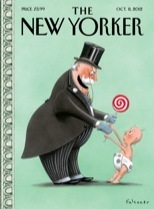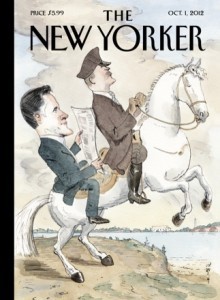Clifford Garstang's Blog, page 94
October 4, 2012
Los Angeles Review: Review of What the Zhang Boys Know
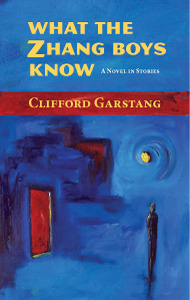 A pleasant surprise. The Los Angeles Review, which is a terrific journal published by Red Hen Press, posted a review by Ed Bennett of What the Zhang Boys Know.
A pleasant surprise. The Los Angeles Review, which is a terrific journal published by Red Hen Press, posted a review by Ed Bennett of What the Zhang Boys Know.
Bennett writes:
Ultimately, What the Zhang Boys Know is a book about the many types of love we can experience. Simon and Wesley learn their love for their mother is not lost, although they must continue to seek it. Their neighbors illustrate more superficial forms of desire—for things and fleeting relationships, which change constantly. Garstang empathizes with all of them, refusing to take sides among the people who are trying to find a little Eden amid the rubble of urban development.
October 3, 2012
Under My Apple Tree reviews What the Zhang Boys Know
 Today the Virtual Book Tour takes us to the Under My Apple Tree Blog for a review of What the Zhang Boys Know.
Today the Virtual Book Tour takes us to the Under My Apple Tree Blog for a review of What the Zhang Boys Know.
The reviewer says, in part:
The book is composed of twelve short stories, each centering around one of the residents of the building. They are a diverse group of people brought vividly to life in their pain, sorrow and longings. While each of them are flawed, they are also sympathetic, well-drawn characters. The writing was beautiful. The stories came alive. The shifting viewpoints and changes in writing style as we heard from the different individuals enhanced the reading experience.
As with many of the blogs on the tour, readers have an opportunity to enter a contest to win a copy of the book!
October 2, 2012
Write Now, Right Now: Review of What the Zhang Boys Know
 The Virtual Book Tour continues.
The Virtual Book Tour continues.
Today, What the Zhang Boys Know is reviewed (with spoilers) on Write Now, Right Now.
Betsy Ashton says, in part:
Garstang’s prose is poetic. His grasp on cultural norms and misunderstandings brings the reader to tears and chuckles, often in the same paragraph. … [E]ach story stands alone and also drives forward sketches of the characters who inhabit Nanking Mansion. A wonderful read. Well worth the time. You’ll want to finish it in one sitting, but sip it. Read a story, think about it, then go on to the next. You’ll be glad you did.
October 1, 2012
Patricia’s Wisdom: Review of What the Zhang Boys Know
 The Virtual Book Tour has begun.
The Virtual Book Tour has begun.
The first book blog to be heard from is Patricia’s Wisdom.
Patricia says, in part:
I usually savor books of short stories, allowing each one to unfold on different days or similar to the treat of “second dessert” before I go to bed at night. WHAT THE ZHANG BOYS KNOW, is a Novel in Stories and was a devouring experience. I read cover-to-cover all in one day as I got hooked into each selection and could not wait to see what the Zhang Boys knew.
Review of What the Zhang Boys Know
 The Virtual Book Tour has begun.
The Virtual Book Tour has begun.
The first book blog to be heard from is Patricia’s Wisdom.
Patricia says, in part:
I usually savor books of short stories, allowing each one to unfold on different days or similar to the treat of “second dessert” before I go to bed at night. WHAT THE ZHANG BOYS KNOW, is a Novel in Stories and was a devouring experience. I read cover-to-cover all in one day as I got hooked into each selection and could not wait to see what the Zhang Boys knew.
The New Yorker: “Fischer vs. Spassky” by Lara Vapnyar
October 8, 2012: “Fischer vs. Spassky” by Lara Vapnyar
After reading this story, I figured it was a novel excerpt because it doesn’t really end. The contributor notes say that Vapnyar has a new novel coming out next year, so then I was certain. But the Q&A with Lara Vapnyar says nothing about this being an excerpt, so I just don’t know. If it’s a story, I don’t like it much. If it’s a novel excerpt, I see some potential for it. (The story is available to read for free, so you can judge for yourself.)
The story begins with Marina on her way to see a client. It turns out that she’s some kind of home health aide, visiting Elijah, who is watching the news accounts of the death of Bobby Fischer. Fischer’s death brings to Marina’s mind an episode from 1972, the year of the Fischer-Spassky chess championship in Moscow. She and her husband Sergey are thinking of emigrating. As Soviet Jews that would mean first going to Israel, but eventually to the United States, which they have imagined is some kind of heaven. But they’re both really into the chess match, at first rooting for Fischer because he’s some kind of symbol of the US to them. But then Sergey makes an odd wager, of sorts—if Fischer wins, they will emigrate. If Spassky wins, they’ll stay put. And Marina begins to think that she likes it where she is, so she gets angry at Sergey for rooting for Fischer.
Jumping back to the present, it turns out that they did emigrate, that Sergey died of a heart attack shortly after their arrival in the United States, and that she gave birth to a daughter after Sergey’s death. (The daughter seems irrelevant to this story, which is one reason I was sure it was an excerpt.) But there she is, helping old Elijah, while he talks about how Fischer had become this crazy old anti-Semite.
The end. Huh?
In the Q&A, Vapnyar tells us that the story is about the dual disappointments in life in the US and Bobby Fischer. That doesn’t seem to be enough to make this story work, though. Does it?
Publication Day is Here! Blog Tour Kicks Off!
 It’s a big day. Today, October 1, is the official publication day of my new book, What the Zhang Boys Know.
It’s a big day. Today, October 1, is the official publication day of my new book, What the Zhang Boys Know.
That means the book is now widely available for purchase at Amazon, Barnes & Noble, your local independent book stores, and direct from the publisher. And it will be available very soon on Kindle and Nook.
And publication day means that reviews are starting to appear on Amazon and elsewhere. Plus, for the next several weeks, I’ll be participating in a virtual book tour. You can follow along here: Virtual Book Tour for What the Zhang Boys Know.
The day started well when I received this email from a reader:
I love love love love the book. I just finished it, sad that I had run out of pages.
September 28, 2012
Fall for the Book Festival at George Mason University
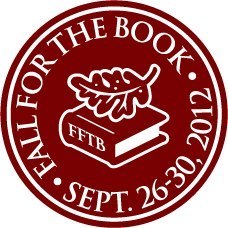 The Fall for the Book Festival at George Mason University in Northern Virginia began on Wednesday this week and continues through Sunday. Because the time slot I was assigned to read on Thursday was relatively early, and because I also had an event scheduled for Thursday evening, I decided to go up to Fairfax for a couple of days and try to experience more of the festival than just my own reading (which was all I could do when I participated last year).
The Fall for the Book Festival at George Mason University in Northern Virginia began on Wednesday this week and continues through Sunday. Because the time slot I was assigned to read on Thursday was relatively early, and because I also had an event scheduled for Thursday evening, I decided to go up to Fairfax for a couple of days and try to experience more of the festival than just my own reading (which was all I could do when I participated last year).
So I booked a room at the Mason Inn, which is a very nice hotel on the campus of GMU, and I drove up on Wednesday afternoon. I had also been invited by my Chinese teacher (a long story that I may discuss at some point in the future) to attend the Chinese Mid-Autumn Festival at the Alexandria Campus of Northern Virginia Community College, after I got settled into my room I drove over there. Driving in Northern Virginia is one of the reason I moved away from DC–I hate it. The whole area is terribly congested and the roads are confusing. Still, I got to NVCC without incident, found a place to park, and found the festival and my teacher. I hung around for about an hour, talked to some people, and then headed back to Fairfax so I could attend the evening reading.
Which I did. I went to hear Karen Russell read from Swamplandia!, the novel that was a finalist for the Pulitzer Prize in fiction this year (no winner was chosen, as you may recall). I sat in the front row a few seats away from Russell and I confess that I didn’t recognize her until the GMU host who made the introductions made mention of coming festival attractions and named me and indicated me, at which Russell leaned over and said Hi. (We also chatted for a while after her reading, talking about our mutual Northwestern University ties.)
Russell read the section called “The Dredgeman’s Revelation” from the book. As soon as she started, I realized that it had been in The New Yorker a couple of years ago, and that I had reviewed it in the blog, as I do with every piece of fiction in that magazine.(See my discussion of the story here. Obviously I was mistaken at the time–it was an excerpt from the novel.) After the reading there were lots of questions, and a very long line of people wanting their books signed. (I bought one, but having already chatted with her, I didn’t get in the line for the signings.)
My reading was the next morning at 10:30 in a tent in the middle of campus. I had been scheduled last year to be in that same tent but that day was stormy and they moved us inside. No bad weather yesterday, but it was a little warm. There weren’t many festival goers at that hour, so our session was lightly attended–about half students (who must get some kind of extra credit for showing up) and half visitors. The other reader in my hour was Edward Belfar, author of a story collection, Wanderers, put out this year by Stephen F. Austin State University Press. After Edward read for about 30 minutes, I decided to make my reading shorter, and I read the beginning few pages of “The Replacement Wife,” from What the Zhang Boys Know. And then we took questions and signed a few books.
As I went to the next reading, I wished I had asked for a session later in the day. I’m not sure that would help draw more people, but I think it would.
But next was the reading by Wiley Cash. He didn’t have a whole lot of people in his reading either, but more than we did (and he wasn’t in a tent). He talked for quite awhile about he had come to write his novel, A Land More Kind than Home, his experience with agents and editors and revision, etc. And then he read a short section from the book (snakes!), and answered questions. Afterward I had a chance to chat with him–we have mutual friends–but then people lined up with books to be signed so I moved on. He seems like a very nice guy and I’m looking forward to reading the book, which I’ve had for some time now.
Then I went back to the tent for the next reading, by Bernice McFadden. I confess that I had not heard of her, but the festival program included a description of her new book, Gathering of Waters, and that sounded interesting. Plus, it seems as though publishers don’t make it easy for readers to discover African American writers, so this was an opportunity to widen my exposure. (Have you seen this blog: White Readers Meet Black Writers?) The audience for McFadden was made up largely of African American History students who had been urged (required?) to attend by their teacher, who introduced McFadden. But there were a few non-students in the audience, as well. McFadden gave a charming and frank talk about her work, read a little from the latest book, and then answered questions. (Once the students got warmed up, they asked a lot of them.) This time I got the book and had McFadden sign.
I returned to the hotel and after a bit it was time to head into the city for my next gig. After my experience driving the day before, and knowing the parking hassles of central DC, I decided to take the Metro (although a rush-hour ride from Fairfax to Farragut West is a shocking $6.10 now–twice or three times what it was when I lived in the District). The hotel had a shuttle to the Metro stop, so that was easy, and I arrived downtown with plenty of time to spare. So I decided to relax a little in a nice looking place called Le Pain Quotidien, which turns out to be a chain. But very nice food, a nice glass of wine, WiFi. Just what I needed.
I then went to the law office where my next reading would occur. The event was hosted by the Northwestern University Club of DC in the penthouse conference space of a DC law firm. Very nice. There was wine and beer and light food, and time to mingle with the 20 or so people who were there. And then we sat in a big circle–the event was billed as a Fireside Chat–and I began to talk. I’m even more embarrassed about it now than I was last night, but I spent a long time recounting my road from Northwestern University philosophy major to my current work writing and publishing fiction. This was a group of accomplished people each, I’m sure, with his or her own interesting story to tell, but they seemed to be engaged by mine, so I kept going. And then, when I got to the end, they wanted me to read a little from the new book, which I did. And then almost everyone there bought a book! It was great. (But embarrassing.)
I then went out for a night cap with some friends who were there, but realized I was cutting things a little tight with the Metro and the shuttle bus back to the hotel. So I hurried to the Metro–it was raining–and got out to my stop just as the shuttle bus was pulling away. (I tried to flag him down but he ignored me.) I didn’t feel like waiting for the next shuttle (and wasn’t really sure there was a next one), so I grabbed a cab–$20, but at least I got there relatively quickly.
And then this morning I drove home.
I wish I could have stayed to hear more of the speakers and readers–people like Neil Gaiman and Michael Chabon and others–but I had to get back.
Forthcoming Books: The Supremes at Earl’s All-You-Can-Eat by Edward Kelsey Moore
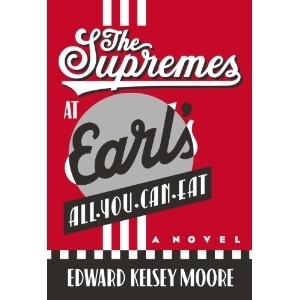 A few years ago, I went to the Indiana University Writers’ Conference and participated in a fiction workshop led by Amy Bloom. One of the other participants was Edward Kelsey Moore, a cellist who also had a great voice on the page.
A few years ago, I went to the Indiana University Writers’ Conference and participated in a fiction workshop led by Amy Bloom. One of the other participants was Edward Kelsey Moore, a cellist who also had a great voice on the page.
It’s no surprise that his first novel, The Supremes at Earl’s All-You-Can-Eat is forthcoming in March 2013 from Knopf.
Here’s a description:
Told with wit, style, and compassion, this is the story of friendship among three women weathering the ups and downs of life in a small Midwestern town.
When Odette, Clarice, and Barbara Jean meet as teenagers in the mid-sixties, the civil rights movement is moving along and so are their everyday lives. Their regular gathering place is Earl’s All-You-Can-Eat diner, the first black-owned business in downtown Plainview, Indiana. Dubbed the Supremes by their friends, the inseparable trio is watched over by big-hearted Earl during their complicated high school days, and then every Sunday after church as they marry, and have children and grandchildren. Sitting at the same table for almost forty years, these best friends grow up, gossip, and face the world together with pointed humor, some sorrow, and much joy. Meet Odette, Clarice, and Barbara Jean–once you meet them, they will be your friends forever…
September 24, 2012
The New Yorker: “Jack and the Mad Dog” by Tony Earley
October 1, 2012: “Jack and the Mad Dog” by Tony Earley
I completely understand Earley’s impulse here. He was interested in a story about man being bitten by a dog, but there wasn’t enough going on there to make it work. Jack of Beanstalk fame popped into his head and the story took a different, more interesting direction. Then add the meta-fictional elements, and you’ve got what I think is a pretty good story.
Jack is waiting for the farmer’s wife because she puts out for $4 after the farmer has gone to bed. But the farmer doesn’t go to bed. Instead, he sits on his porch, smoking and waiting. Meanwhile, Jack finds some moonshine, which he drinks because he’s always finding stuff that’s useful in his adventures. He drinks the stuff, goes numb, and suddenly he can see things.
He sets off down the road and eventually he comes to a bridge and a black dog materializes on the bridge. It talks. It looks like Jack is done for, but he’s always survived before, he says. The dog retorts that this time it’s different, and it seems as though the dog might represent some kind of karma for Jack’s misdeeds. They struggle and Jack runs; then he encounters twin girls who claim that they are the miller’s daughters and that Jack has slept with them both. And then there are more girls—all nameless—whom Jack has wronged. Basically, Jack’s run of stealing and cheating and whoring has come to an end.
In the Q&A with Tony Earley, the author (who was on faculty at the Sewanee Writers Conference the last time I was there) discusses how the old English folk tales were enhanced with Scots-Irish elements in Appalachia, but now don’t really survive in any real form—it’s all artificial preservation. And so maybe that’s what we’re seeing in this story: the death of folklore.

